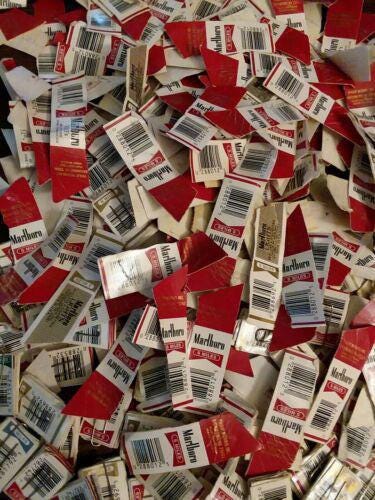Colin Nagy | June 26, 2025
The Marlboro Miles Edition
On nefarious early gamification tactics
Colin here. In the nineties, as a middle school kid who loved skateboarding, my friends and I would take a break, and scour construction sites for something unusual: discarded packs of Marlboro cigarettes. We weren't smokers, nor did we have any interest in smoking. Instead, we were searching for the small pieces attached to the side of the package: Marlboro miles. These small pieces of cardboard, when accumulated, could unlock cool rewards (at least to a California middle schooler). The rewards mapped pretty closely to what the brand conjured up in your mind: Swiss Army knives, canoes, and even a pool table (which a VFW outpost supposedly saved up for, according to a Reddit thread).
It wasn't so much the brand that was appealing, though I'm sure some of the cowboy mystique and action guy masculinity rubbed off. It was more about getting stuff for free and scavenging to create gratification from nothing on those hot summer days without much to do, other than skate curbs and fill the space between soccer practice or other non-obligations. Life was much simpler then!
Why is this interesting?
We now live in a loyalty and gamified world where people lust after credit card points (and will overstretch their need for credit to get them). Status on airlines is a social signifier. Even things like Duolingo lean on gamification and other dark patterns.
But Marlboro Miles were an early version of this, driving brand loyalty and tapping into psychological triggers. Obviously, they were peddling a cancerous product that can kill you. And no one is doubting the moral and ethical implications of this program. As I did some research for this piece, it was indeed quite sad: children recounting having too many things from the Marlboro miles store, with points garnered from a lifetime of a parent’s smoking (and not the innocent scavenging that I did as a kid).
The program was huge: 5 million participants, with an estimated $3 billion in merchandise. It was a nefarious blend of brand consistency, selling a worldview, psychological lock-in, social proof, and manufactured exclusivity. Turns out these are pretty timely levers. I'm quite fortunate to only have been locked into the "wanting to get cool stuff for free" part of the mechanism.
There was a bit of a bright glimmer from the threads I read for this piece. A redditor talks about gaming the system:
"My grandma figured out that they didn't actually count the miles; they were weighed. If you ordered this, then your miles should weigh this well. Every house in the neighborhood she used, plus family members' addresses, else were to get orders by cutting up index paper. Everyone got Marlboro stuff for Christmas, birthdays, for the next few years. My favorite was the folding bike and pop-up tent. I still have two hats, a blue rain jacket, two duffel bags, a book bag, and a blue jean jacket from those days..."
You have to admit that grandma’s understanding that (i) manually counting the miles was hard, and (ii) circumventing their system was pretty sharp. The sort of criminally clever thinking that powered the whole program in the first place. (CJN)

